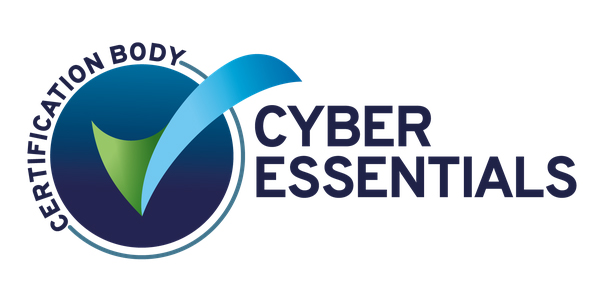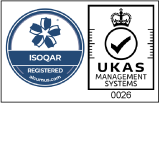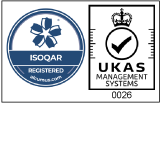Tech Thoughts
Introduction
This is the latest in a series of Tailor Made Tech Thoughts, providing insight on tech matters that relate to SME’s. In these bulletins I look at some global trends and try to assess how these phenomena might impact on small and medium sized companies in the South of England. I’ve recently been thinking about AI and how it has impacted our lives to this point and where the next developments might take us.
Richard Hotchkin, CTO. Tailor Made Technologies
The Influence of AI as we move through the decade
Many years ago, I studied the development of Neural Networks at university. In those days the technology was really only just being talked about and the first applications tended to be adopted for optical character recognition and speech recognition. It’s amazing to see how this technology has developed in just a couple of decades, with everybody now used to shouting at Siri or telling Alexa to “Shut up”!
These days, it seems that AI is everywhere, from intelligently optimising our journey times to avoid traffic, to using behavioural analytics to identify what each person considers spam email, Artificial Intelligence based on machine learning and neural networks is in widespread use. These applications give us some hints as to where Artificial Intelligence might be headed in the future and what impact that might have on small and medium sized business over the next decade or so.
Conventional thinking has been that AI would be instrumental in the automation of blue-collar work, leading to a reduction in manual labour and costs as well as a general up-skilling of the workforce. This has certainly been the case and today even blue-collar jobs require a significantly higher level of technical competence than could have been imagined 20 years ago. The result is that the skills gap has actually widened as smart manufacturing relies increasingly on high-tech systems, sensors, feedback loops and continuous automation.
The impact of AI on blue collar jobs however is just the start. Increasingly as we move towards 2030, white collar workers are likely to become increasingly affected as machine learning and pattern recognition technologies become more effective and are more widely adopted.
Affected Industries
Artificial intelligence will increasingly play a more important role in the business world as a decision-making tool. By learning from previous situations, AI can provide insight and automate complex decision processes based on data and past experiences. This means that the robots won’t just replace low-wage, low-income jobs. As AI and robotics evolve, we will see more white-collar jobs also begin to be replaced.
As technology develops, it is anticipated that workers who have a degree might be over 5 times more likely to be exposed to the impact of AI than those who haven’t studied at university. This is because AI is especially good at completing tasks that require planning, learning, reasoning, problem-solving and predicting, most of which are skills associated with white-collar jobs.
Affected industries are likely to be those that AIs strengths are most suited to. Industries that involve translating data into business decisions such as Finance or Inventory management or perhaps Management more generally will be particularly impacted. Some analysts predict industries such as the legal sector and human resources will lose as many as 1 in 4 positions as a direct effect of AI advancement. By 2025, AI used in white collar jobs is expected to reach a tipping point and about 30% of corporate audits will be performed by AI.
Benefits
Opportunities exist for SMEs to leverage AI technology in e-commerce, manufacturing, human resources, accounting, customer relations, marketing and many other areas of the business. The introduction of AI technology tends to enhance enterprise performance, raise sales, lower costs, automate customer management, save time, limit flaws and advance data collection & processing. Various artificial intelligence techniques can be employed to enhance enterprise performance including fuzzy logic, artificial neural networks, expert systems, genetic algorithms, machine-learning techniques, swarm intelligence-based algorithms and deep learning.
Increasingly, business applications are using AI and machine-learning and this trend is only going to accelerate. Wherever AI is implemented the core goal is to improve productivity, realise efficiency savings, improve performance, enhance the customer experience and ultimately deliver a competitive advantage.
Preparing for AI
One of the big applications of AI is in the analytics of an organisation’s data. In order to prepare for this, SMEs should really give thought to the underlying structure of their data to ensure that it’s ready for advanced analytics. By leveraging the power of PowerBI, the data that will be generated will begin to help with decision making in the business. As AI begins to get more established, organisations will begin to find that those business decisions will be made automatically after the machine has learned from some of the historic decisions that are made.
Aligned with a clean data structure is the nature of the data itself. The data being collected for the business should be relevant to the organisational goals. Thought should be given to improving the number of datapoints and the frequency of their collection. The source of the datapoints could vary from industry to industry. One organisation might be able to collect meaningful data from its existing line-of-business applications, whereas others might look to introduce some IoT or Always Connected data collection points. It is likely that business processes will need extensively reviewing to optimise the benefits of AI.
Of course, all this data needs to be stored, and Microsoft SQL Server is the ideal place. Tailor Made can offer advice on SQL configuration whether it be onsite, colo or in the cloud. With increased data, care needs to be taken around the security of that data. Tailor Made has a suite of Cyber Security products designed to help to secure SMEs from cyber-crime.
Conclusion
Businesses will be on the front line of the workplace as it changes. This will require them to both refresh their business processes and re-evaluate their talent strategies and technology partnerships, carefully considering the optimal way to deploy and support this technology. Where internal staff are impacted, it may be possible to redeploy them to other jobs, perhaps after some retraining. Many companies are finding it is in their self-interest—as well as part of their societal responsibility—to train and prepare workers for a new world of work.
Regardless of market sector or industry vertical, AI is here to stay and its adoption is only going to increase as technology progresses. The result will deliver many benefits for SMEs and is likely to change the approach to business and life in general as we move deeper into the century.







